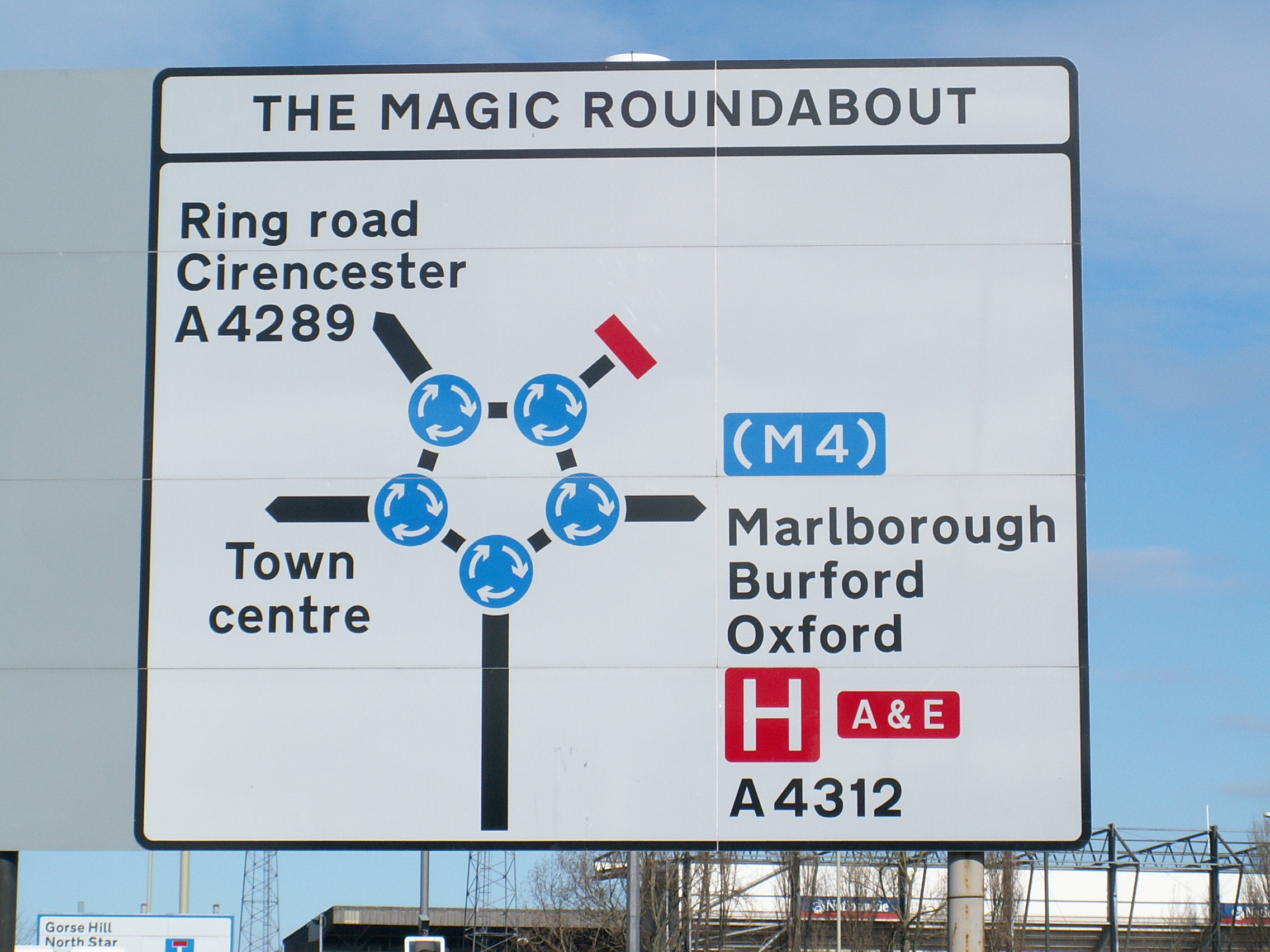Roundabouts have been in use in the UK for over 50 years, and today are seen as a natural part of the landscape – something as intuitive to use as a postbox. Everyone knows how to use them, they’re just intuitive to use, surely?
Apparently not, judging by this BBC article on the introduction of roundabouts to the USA and hundreds of American roundabout videos on YouTube (example below) .
It’s easy to fall into the trap of assuming certain knowledge is common to everyone – that we all understand the basic concepts. This isn’t always the case, and things may not be intuitive. They may be easy to use, yes, but there is often a need to familiarise users at the start. This is true for software development as it is for roundabouts.


I remember encountering the magic roundabout in Hemel Hempsted in the late 70s, thankfully someone else was driving. I never found it a problem after my first attempt on my own, but it’s right not to assume prior knowledge or that something is obvious.
It’s also dangerous to assume that different countries use roundabouts in the same way as other countries, but that isn’t true. I can see all sorts of disasters happening when unwary Brits drive in the USA, given that on some roundabouts you have to stop on the roundabout, and on some you don’t, as controlled by signs and lights. Here in NL many roundabouts in the towns give pedestrians and cyclists the right of way when crossing, even if that means backing up the traffic all the way around. I’m in favour of that though. The need for other people’s safety is far more important than the need for speed.
Um, can one trust the professionalism (and therefore the opinions) of technical authors who can’t even get their own phone number right? The code for London is (and always has been since the switch over) 020 it is not 0207 or 0208; just 020. And then there’s the format of the rest of the number; it should be 020 8133 1301. To get this wrong shows a lack of care.
And then there’s the historical view in the opening paragraph. It is not that long ago that France changed their rules for using rundabouts. They were supposed to give way to vehicles coming on to the roundabout not as we have always done (and they now do) of giving way to vehicles already proceeding around the roundabout.
Plus this deficient analysis ignores that we in the UK have two different rules for roundabouts. We do things different at mini-roundabouts from what we do at full ones.
Yeah gods, set the paradigm up and then when it should get interesting “This [non-intuitiveness] is true for software development as it is for roundabouts”. Finis. The end. Done. Finished. End of story. Thank you and good night. That’s about as intutitive as claiming roundabout usage is.
“Basic concepts”
Basic that one might find a technical author who a) knows the cultural conventions of the national market they are working in, b) knows ther history, c) knows about fundamental differences, and d) (more importantly) can actually write about the topic in a cogent and sustained manner.
Now tell me what software developers should infer from roundabout usage.
>The code for London is (and always has been since the switch over) 020 it is not 0207 or 0208; just 020.
That may be the case officially, but in reality people say and use 0207 and 0208. An Ofcom study commissioned in 2005 found that only 13% of respondents correctly identified the 020 code for London without prompting: 59% incorrectly identified it as “0207” or “0208” (http://stakeholders.ofcom.org.uk/binaries/research/telecoms-research/london_telephone.pdf).
13 31 301 is easier to remember IMHO than 8133 1301.
Arranging the numbers in a different way to make them more memorable and understandable still results in the calls getting through to us.
I think someone’s pulling your leg Ellis, as anyone who says:
“Um, can one trust the professionalism (and therefore the opinions) of technical authors who can’t even get their own phone number right?”
and then writes ‘rundabout’ would be a bit of a fool wouldn’t they? Also, a ‘computing scientist’ would never forget to use the spell checker before hitting the send button. Only a very stupid person would do that.
This reminds me so much of my father, who would spend hours railing against how people misuse language (he was also a tech author). For example the word ‘gay’ got him every time. He also ignored the fact that language is fluid and ever changing, and his conversation, like the one above, never actually moved the conversation on in any way. Thus making it a complete waste of time.
Your points about the actual usage and how people remember shows an excellent insight into your understanding of both audience and disseminating information – which is why Cherryleaf is so highly regarded by both clients and the profession in general.
Cheers
As to the spelling “rundabout” well I ain’t the one hawking services in documentation. As to the phone number just because 59% get it wrong is no excuse for getting it wrong oneself. As to the differences between the various styles of roundabouts to be encountered in the UK well not a word.
But as to the real point that this American introduction of roundabout teaches software developers something, well what is it supposed to teach? If there’s something to be learned what it is because the above doesn’t say? It’s incomplete.
[…] roundabouts can teach every software developer. Or technical communicator […]